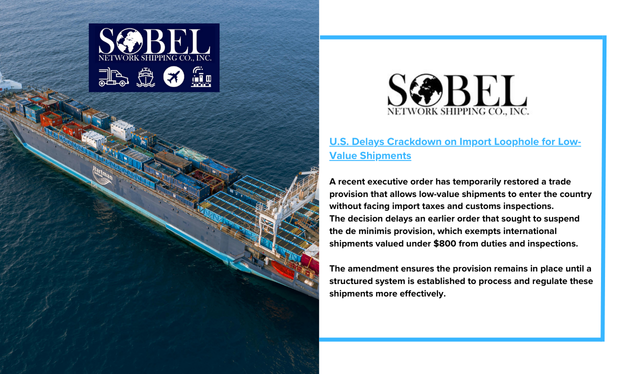A recent executive order has temporarily restored a trade provision that allows low-value shipments to enter the country without facing import taxes and customs inspections.
The decision delays an earlier order that sought to suspend the de minimis provision, which exempts international shipments valued under $800 from duties and inspections. The amendment ensures the provision remains in place until a structured system is established to process and regulate these shipments more effectively.
The de minimis threshold has become a widely used mechanism in global trade, particularly benefiting e-commerce retailers and logistics companies that rely on cost-efficient shipping. The original suspension of the provision caused uncertainty within the supply chain, leading some shipping providers to temporarily halt parcel processing before resuming operations.
The volume of shipments entering under the de minimis rule has surged in recent years, reflecting the rise of direct-to-consumer e-commerce platforms that ship products from overseas manufacturers. According to customs data, the number of such shipments more than doubled over the past four years.
Industry leaders have voiced concerns over the operational burden of additional documentation and compliance requirements, noting that customs authorities may not have the capacity to efficiently inspect the high volume of small-value packages. Some suppliers have reported pricing adjustments and product removals from online platforms following the initial suspension of the provision.
As policymakers work to refine regulations, businesses across the supply chain continue to assess the potential impact on pricing, logistics, and consumer purchasing behavior. The long-term approach to managing low-value imports will likely play a key role in shaping future trade policies.


